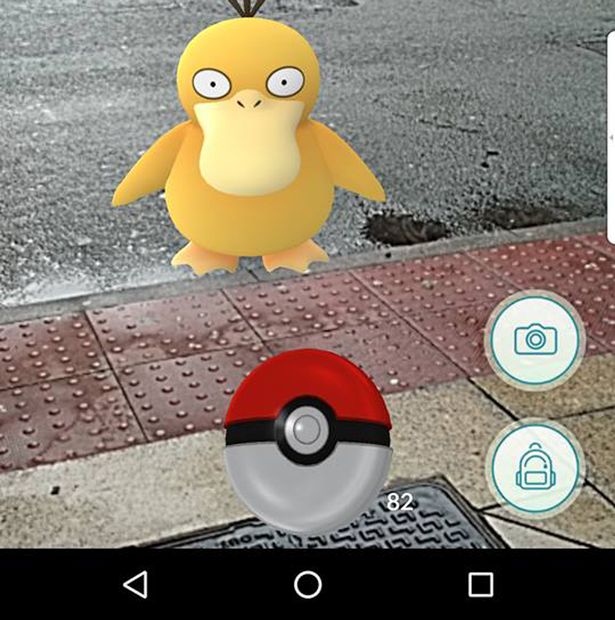Genre: Biopic
Premise: The true, and at times shocking, story of how the Oxford dictionary was created.
About: This was a big project around 2001. Mel Gibson’s company bought the rights to the book it was based on. At one point, Luc Besson was tapped to direct. The script’s original writer, Todd Komarnicki, has had a bit of a spotty career, but actually just landed a huge assignment. He scripted Sully, which you may remember me opining about in my newsletter. The script was then rewritten by writer-director John Boorman, who’s done a million things, including Excalibur, Exorcist 2, and a dialogue polish on Deliverance.
Writers: Todd Komarnicki (rewrite by John Boorman) (adapted from the book by Simon Winchester)
Details: 121 pages
How does one make the dictionary interesting?
How does one make any inherently boring subject matter interesting.
I’ll tell you how.
Murrrrrrrr-derrrrrrrrrrr.
Like Pokemon Go or Chewbacca Mom, murder makes everything more palatable! And that’s what caught my interest with this long forgotten project. You see, unfortunately for “Madman,” it hit the streets long before the biopic craze. Hell, even before the Black List craze. And therefore this offbeat tale of how the Oxford dictionary was conceived never built enough buzz to turn the light green.
If this had been written today, however? I have no doubt it would already be in production. True, Squirtel or Bellsrpout might have played a prominent part. But who ever said making movies was easy? Quentin Tarantino almost cast a no-name female actress as one of the gang members in Reservoir Dogs because her boyfriend promised to give the production 1 million dollars. Casting Squirtel as a dictionary is a no-brainer.
It’s 1872. It’s London. It’s dirty. But most importantly, it’s a definition-less city. All this language is being bandied about by 3 million people, yet nobody has a reference for how to correctly say any of it.
James Murray wants to change that. He wants to do what Oxford has tried and failed to do for decades now – write a dictionary. A container of every single word and its definition in the English language. The reason this hasn’t been accomplished yet is because nobody knows how to accomplish it! Nobody even has a game plan for rounding all these words up.
Enter Dr. Minor. Actually, let’s back up a little. Dr. Minor was a surgeon in an American war who branded a soldier with a giant “D” on his face after that man tried to desert the army. After the war was over, Dr. Minor became convinced that the soldier was attempting to find him and kill him.
Dr. Minor escaped to London, only to find the man still stalking him (or so he believed). He finally ran into D-Man and shot him dead. Except it turned out Dr. Minor didn’t shoot the correct man. It was just some random Londoner. After going through the English court system, Dr. Minor was considered crazy-town, and sent to an asylum.
From there, we cut back and forth between Murray’s tireless quest to find and define all the words ever, and Dr. Minor, who becomes sort of the “Andy Dufresne” of his asylum, helping others learn art and accumulating a mini-library in his cell.
When Dr. Minor hears that Murray is building a dictionary from scratch, he decides to help, meticulously going through every book he owns, writing down a definition for each word, and sending them to Murray.
In the meantime, Dr. Minor must deal with the guilt he feels over leaving a woman and her children without a husband and father. And when he tries to mend that fence, eventually meeting the widow for the first time, things don’t go as planned. I suppose that’s why life cannot be defined.
Have you ever thought of how difficult it would be to create a dictionary from scratch when one had never been written before? Think about that for a minute. You don’t have the internet, remember. You don’t even have a list of the words to define yet! Where would you begin?
That question definitely pulled me in. But then reality hit. How would you DRAMATIZE that? That’s the question you must ask with any idea you come up with. How do I dramatize this? In some cases, the idea itself incites drama. In other cases, you’ll have to go looking for it. It is my belief that if you have to go looking for it, it probably isn’t a movie-worthy premise.
Drama /drämə/ (noun) – an exciting, emotional, or unexpected series of events or set of circumstances.
To understand that statement better, here are two premises. Notice how one is dripping with dramatic possibility, while the other doesn’t have a dramatic bone in its body
1) When a private plane full of rich passengers crashes on a barren island, the people on board will devolve into the worst versions of themselves in order to survive.
2) A private plane escorting a soccer team to the West Coast allows its passengers to explore the power of friendship.
Do you see the difference here? How the first idea bleeds drama, meaning you can already imagine tons of scenes in your head. Whereas with the second one, you probably can’t think of a single scene. This is the kind of thing to be aware of when coming up with ideas. “Do dramatic scenes start popping up in your head after reading the premise?”
To “Madman’s” credit, it finds SOME dramatic elements. But it’s not as juicy as the title would have you believe. The big murder that takes place happens at the beginning of the movie, and then that’s it as far as murder.
Pokemon Go /ˈpōkiˌmän/ (noun) A video game by which people with little to no lives chase miniature monsters in a virtual world created by their phone.
I thought there was going to be some competition – like two dictionary groups trying to beat each other out to win the historic prize of first-ever-dictionary. And that they would’ve resorted to murder to win the competition.
The reason that would’ve worked better is that now you have something to BUILD TOWARDS. You can build towards the growing frustration, the growing tension, the impending murder. We know that things are coming to a head and we’re excited! But when you murder someone before the main story even begins, you’ve eliminated that chance to build.
We talked about this yesterday. We built towards this big rescue, but then were done with it by the midpoint. What’s left to build towards? That’s another question you want to be aware of. Am I still building towards the most powerful moment in the story? Because if the most powerful moment in your story is in the rearview mirror, there’s something wrong with your structure.
“Madman” does its best to mitigate these problems by creating a strange love story between Minor and the woman whose husband he killed. And then with Murray, we see him stressing out a lot under the pressure.
But where the story really struggled was in its stakes. The script never answered the question: WHY DID THIS NEED TO BE DONE? And WHY RIGHT NOW? If they failed, what would happen? Lots of bad grammar? Time has proven that we’re going to have that problem whether there’s a dictionary or not.
I’ll give you an example of stakes from another English period piece with a somewhat similar setup: The King’s Speech. The King attempts to get rid of his stutter in order to warn the world of Hitler (just like Murray is attempting to finish this dictionary) with the difference being that HIS SPEECH MATTERED. It needed to be done. And fixing his stutter did matter RIGHT NOW because time was running out to stop Hitler.
As far as I can tell, finishing this dictionary is more of a prestige thing. Everyone involved just thinks it would be rad to achieve it. That’s fine. But that’s not movie stakes.
Despite this, “Madman” moves along with just enough strangeness to keep you curious. Dr. Minor, for example, was convinced that the man chasing him could raise spirits from Hell to find him. And who would’ve thought he’d bag the woman whose husband he killed?? I mean I’ve seen some strange attempts to get a woman’s attention before, but never one quite like that.
[ ] What the hell did I just read?
[ ] wasn’t for me
[x] worth the read
[ ] impressive
[ ] genius
What I learned: If your script covers a long period of time, and therefore doesn’t have a lot of urgency, a nice trick is to add a cross-cutting storyline that will help move through time effortlessly. We saw this with The Martian. By cutting back to earth, we could come back to Matt Damon 3 months later and the audience wouldn’t blink. That same 3-month jump becomes a lot more prominent if we’re with Matty the whole time. We do that here too. One of the ways they disguise the years it takes to write this dictionary is by cutting back and forth between Minor and Murray. Each time we cut, we do so 3-6 months ahead. So if masking a huge swath of time is a problem, consider a second narrative you can jump back and forth from.
What I learned 2: Potentially mundane subject matter is the perfect subject matter to add weirdness to because it’s unexpected. For instance, if I said I’m writing a movie about the ice cream truck business, you’d be like, “Wonderful. Let me know how it goes.” But if I said I was writing about a war between two ice cream truck drivers fighting over the same turf (a real project that just got picked up), that combination of mundane and weird would intrigue you.




